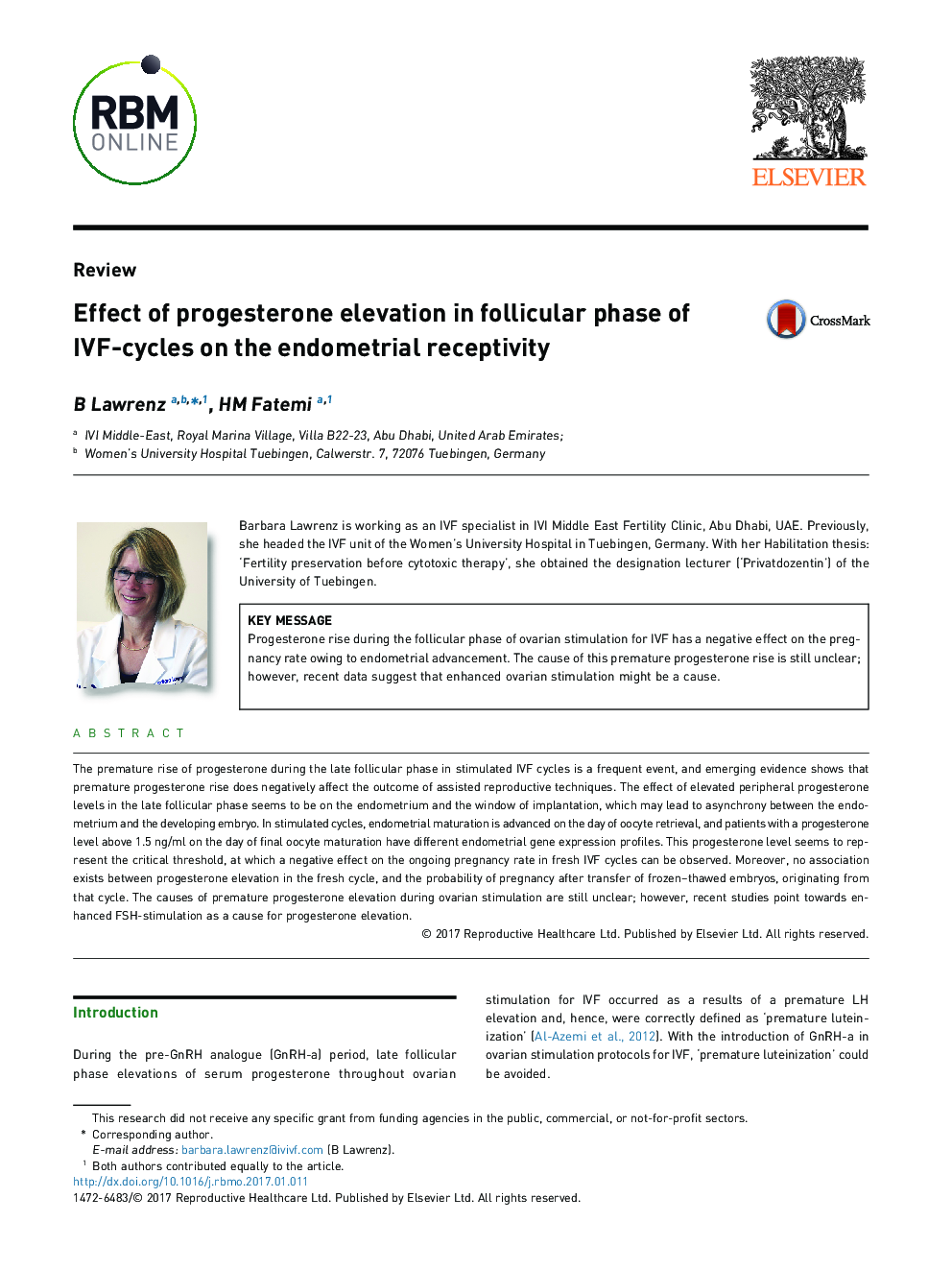| Article ID | Journal | Published Year | Pages | File Type |
|---|---|---|---|---|
| 5696736 | Reproductive BioMedicine Online | 2017 | 7 Pages |
Abstract
The premature rise of progesterone during the late follicular phase in stimulated IVF cycles is a frequent event, and emerging evidence shows that premature progesterone rise does negatively affect the outcome of assisted reproductive techniques. The effect of elevated peripheral progesterone levels in the late follicular phase seems to be on the endometrium and the window of implantation, which may lead to asynchrony between the endometrium and the developing embryo. In stimulated cycles, endometrial maturation is advanced on the day of oocyte retrieval, and patients with a progesterone level above 1.5âng/ml on the day of final oocyte maturation have different endometrial gene expression profiles. This progesterone level seems to represent the critical threshold, at which a negative effect on the ongoing pregnancy rate in fresh IVF cycles can be observed. Moreover, no association exists between progesterone elevation in the fresh cycle, and the probability of pregnancy after transfer of frozen-thawed embryos, originating from that cycle. The causes of premature progesterone elevation during ovarian stimulation are still unclear; however, recent studies point towards enhanced FSH-stimulation as a cause for progesterone elevation.
Related Topics
Health Sciences
Medicine and Dentistry
Obstetrics, Gynecology and Women's Health
Authors
B Lawrenz, HM Fatemi,
